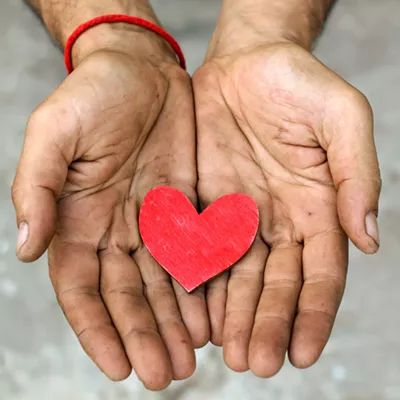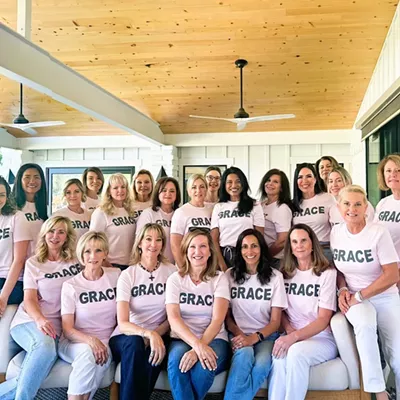It's been four years since undocumented youth were given some sort of legal recognition in the country.
With Deferred Action for Childhood Arrivals, DREAMers, many of whom have called the U.S. home since they were toddlers, can be issued renewable two-year work permits and get temporary relief from deportation, as long as they pass a background check and meet a list of qualifications. The program was enacted by President Barack Obama in June 2012, and to this day has helped more than 700,000 people.
The benefits have been a two-way street in terms of economic opportunities for the country. There are more bodies and minds in the workforce, as well as in higher education institutions.
Still, in Arizona, DREAMers were granted in-state tuition at public universities merely one year ago. (They still have to pay university costs out of pocket because they do not qualify for federal financial aid.) They couldn't get driver's licenses until December 2014, after a years-long legal battle with the state. And, even though DACAmented working youth pay taxes, they still can't get insurance through the Affordable Care Act's online marketplace and are ineligible for AHCCCS, the state's version of Medicaid.
The photography exhibit and writing project "DACAmented Voices in Healthcare"—pieced together by Sofía Gómez, a doctoral candidate in policy and management at the UA Mel Enid Zuckerman College of Public Health, and a group of DACAmented young adults—is bringing the healthcare issue back into focus. The project highlights the limitations, but also the strength of a community—including LGBT DACAmented youth—that's continuously marginalized in an immigration limbo.
"I am learning from them," Gómez says. "Who can speak to this issue more than the people who are affected?"
The exhibit is part of a larger project Gómez started years ago, where she looked at healthcare experiences of mixed immigration status families. In a lot of these households, the younger siblings may be U.S. citizens, others qualify for DACA, and the parents are undocumented.
Organizations like Scholarships A-Z, which supports DACAmented youth in getting scholarships to pay for college, were key to connecting with a lot of the youth, she says. But even entities like the Mexican Consulate in Tucson got involved, she says. For three months, Gómez met with each participant for nearly three hours every Saturday. She refers to the seven of them as "cultural citizens."
The exhibit that will be showcased to the public is the result of a collective brainstorming of images and writing that represent the movement: LGBT participants focused the debate on DACAmented queer and transgender health care accessibility—a discussion that is rarely seen as important amidst alienating politics.
A piece by one of the LGBT youth reads, "Being Queer or Transgender and not having the right documentation means you are more prone to being Disowned, Beaten, Killed, Harassed, Sexually Assaulted for your identity, sexual preference, and the pigment of your skin. Most are forced into a life of isolation, fear, and self-destruction. Some turn to harmful situations or substances that may lead to death or suicide. All can be connected to the non-excitant or lack of accessibility, visibility, and equity we have in the health care institutions and programs in the State of Arizona."
The photos were also taken by the participants.
The project has gone beyond presenting photographs and words. From the exhibit also emerged an entire political campaign demanding city and county officials get involved in bringing healthcare equity to the DACAmented community, Gómez says. In the policy recommendations, the youth demand access to primary and emergency healthcare, more funding for mental health services that are inclusive of the immigrant community, and the creation of job opportunities for local DACAmented youth to represent their healthcare needs and their families', at the political table.
In an ideal world, Arizona could follow the steps of California, which earlier this month enacted a state law that could allow undocumented people purchase health insurance under the Affordable Care Act. That statute still comes with some restrictions, like not receiving the law's insurance subsidies and the exclusion of adults from Obamacare's expanded Medicaid coverage, but it at least gets the ball rolling. It's much better than what this state can offer right now.
"I see it as a moral and collective responsibility to provide services to everyone in need," Gómez says. "Reaching health equity. We can't exclude people from that equation."
Gómez says DACAmented youth are in a unique position within their families. They are often the ones representing their undocumented parents in the fight for equal rights. With at least some legal standing n in the U.S., DREAMers feel a bit more freedom to advocate for their siblings and other family members.
"It comes at a very critical time, during election year," Gómez says. "It reveals a lot of the struggles they are facing: discrimination, fear, depression. But also unity in the community. The dialogue during election season is very extreme and polarizing towards immigrants. The strength their images are bringing back a place of humanity. 'We have a place in society.'"
DACAmented Voices in Health opens Friday, June 24 at 6 p.m. at the YWCA of Southern Arizona, 525 N. Bonita Ave. It runs through July 15.








